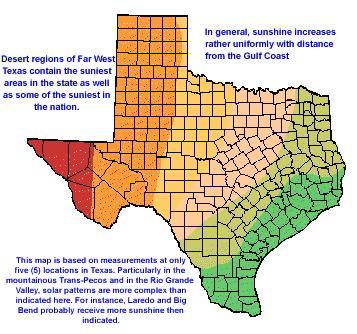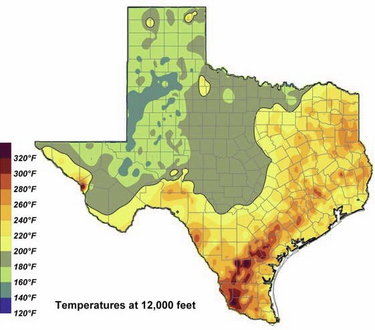SENATOR SHAPLEIGH AUTHORS LEGISLATION TO MOVE TEXAS POWER UTILITIES INTO 21ST CENTURY
March 27, 2009
"In Texas, El Paso is literally the Sun City—we are best positioned to develop, market and lead in solar energy. For several years, we have asked El Paso Electric to take much more aggressive steps to lower costs, allow consumers to generate and sell solar power and put El Paso on the map. Changing EPEC from a 1950s power company to a 21st Century energy company must now be a top community priority,”
Written by Senator Eliot Shapleigh, www.shapleigh.org

AUSTIN - Senator Shapleigh (D- El Paso) has filed a package of bills this session to increase energy efficiency and modernize Texas power utilities by encouraging greater use of solar energy.
Concentrating Solar Power (CSP) creates focused sunlight up to 10,000 times its initial intensity. California and Arizona have announced almost 4,800 megawatts (MW) of large-scale solar projects, including 4,000 MW of CSP and Photovoltaic (PV) projects. Subsequently, 154,000 jobs, $10.1 billion in earnings, and $25.4 billion in economic output will be created in those states over the next 30 years.
As the map below illustrates, the majority of Texas' land is perfectly suited for solar. Texas receives enough solar energy to supply one and a half times the world's current energy consumption.
Click here to view larger image.
Solar potential in Texas. The map was produced by the Railroad Commission of Texas.
Harnessing Texas' natural resources for the production of high efficiency, clean energy will not only help preserve the environment, it will boost the economy and help energy consumers save money.
This session, Senator Shapleigh filed SB 211, which would prevent public utilities from raising rates to consumers unless they meet certain efficiency standards. The legislature has already set these minimum standards under the Public Utilities Code, however, many public utility companies have yet to improve efficiency standards. SB 211 would require that the Public Utility Commission approve a rate increase for a public utility only if the utility can prove it has achieved each applicable energy efficiency goal.
SB 620, filed by Senator Shapleigh, would move Texas' renewable energy program forward by increasing the goal for non-wind renewable energy production from 500 MW to 1,500 MW by 2015.
"In Texas, El Paso is literally the Sun City—we are best positioned to develop, market and lead in solar energy. For several years, we have asked El Paso Electric to take much more aggressive steps to lower costs, allow consumers to generate and sell solar power and put El Paso on the map. Changing EPEC from a 1950s power company to a 21st Century energy company must now be a top community priority,” Senator Shapleigh said.
The bill would also have the state establish a target of 11,000 MW of installed renewable capacity by January 1, 2025.
Senator Shapleigh also filed SB 618, which would require all public energy utilities to provide net metering to their customers. Net metering allows utility companies to measure customer-produced electricity, like that created by household-installed solar devices, and sets the stage for consumers to sell their excess energy back to the utility company.
SB 677 by Senator Shapleigh will help Texas create energy from rooftops across the state by requiring homebuilders that build or plan to build more than 50 homes in a subdivision to offer installation of solar energy devices for heating, cooling or the production of power.
By 2025, there will be an estimated 254 square miles of roofs on residential and commercial buildings in Texas. Texas households pay 56 percent more in monthly energy costs than the national average. Customer-generated electricity would enable Texans to reduce their billed energy consumption while adding small contributions of electricity to the grid, thus reducing the demand on direct energy production by utility companies. Rooftops have the capacity to provide up to 70 or 80 percent of annual water heating energy in Texas and would generate 40 percent of the state's energy resources.
To encourage homeowners to invest in solar for their homes, Senator Shapleigh filed SB 619, which would exempt consumers from paying sales tax on solar devices and complement the existing franchise tax exemption for solar and wind energy devices.
Senator Shapleigh also coauthored SB 427, which would require electric utilities create programs to give home owners and home builders a monetary incentive to build integrated solar and geothermal generation at their residences or places of business. The bill would require that electric utilities provide to their customers educational materials on the program.
El Paso is one of the best state regions for geothermal energy generation:
Uncorrected temperatures of formations at 10,000 feet depth from oil and gas well logs. The map was produced by the SMU Geothermal Laboratory.
Improving how Texans use and generate energy will have tremendous positive impacts on our state's environment. Texas is currently home to the highest greenhouse gas emissions in the nation, ranking seventh globally in carbon dioxide emissions.
As one step toward alleviating these very serious issues, Senator Shapleigh has filed SB 670, which would require that every new state building be certified under the U.S. Green Building Council's Leadership in Energy and Environmental Design (LEED) rating system. By building to new energy efficient standards, the construction of buildings will be easier on the environment and the buildings will be less costly to operate and more sustainable for many years to come. LEED-certified buildings have lower energy and water costs than typical industry standards, easily paying for initial construction costs several times over.
- End -
![]()
Download this document for more information.
![]()
![]()
Related Stories

